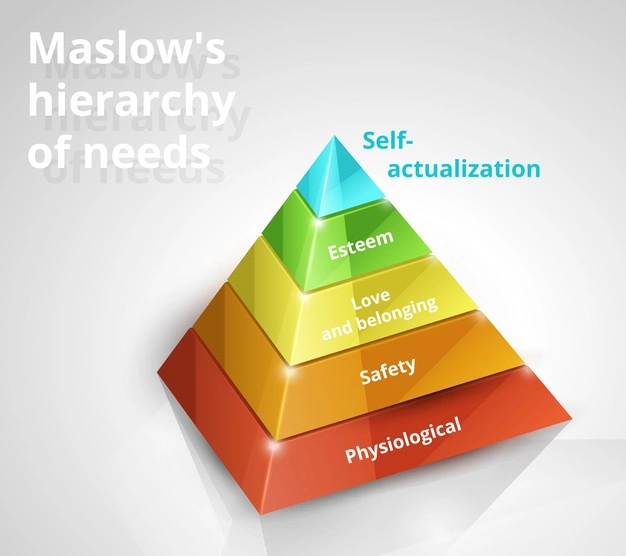As Christmas approaches, we usually try to come up with lists of ideas for gifts and rack our brains on what would make loved ones happy. However, in recent years, a new trend has emerged: people no longer want surprise gifts and prefer to create a pot of money, Amazon wish lists or other specialized sites for Christmas. The same trend applies to other gift-giving occasions such as birthdays, weddings, baby showers, housewarming parties and even Valentine's day. Nowadays, people seem to know exactly what they want: pre-chosen gifts that won't end up in the trash or on a second-hand website.
Yet, despite this trend that seems to do away with the exciting step of finding the perfect gift, we still enjoy picking a gifts from a wish list and offering them with enthusiasm. Gift-giving is a common, cross-culture practice and an established social norm. Most of us get pleasure from receiving gifts and their importance depending on the occasion. But have you ever wondered why we exchange gifts and what is the value of gift-giving? This article explores the psychology and biological mechanisms behind gift-giving and explains why we will probably never stop. Let's dive into the 5 reasons why it's better to give than receive gifts.
1. Gift Giving Meets Your Basic Human Needs
We are social beings unable to live alone outside a community.
Abraham Harold Maslow, an American psychologist famous for having elaborated a hierarchy of needs in the form of a pyramid, demonstrated that human beings do indeed nourish a fundamental need to feel accepted within social groups (family, friends, colleagues), just after physiological needs and the condition of a safe environment. Once these fundamental human needs are fulfilled, access to the next level is possible: gaining self-esteem.

Moreover, if we want to be well-integrated to society , we need to follow the rules established by it. We have just seen that the feeling of belonging to a group is a fundamental need. Cultural traditions can be considered as rules to follow if we want to be accepted as members of a community. For example, it is difficult to go against family or religious traditions for fear of being rejected by our peers. The gift is therefore an ideal way to gain recognition from others and then to acquire self-confidence. However, there are a few rules to follow: don't give gifts that are too luxurious, as the recipient may feel indebted; or too early in the relationship, as love cannot be bought.
2. Express Feelings With Gifts
As early as 1979, Belk studies enlightened the main function of the gift: it allows symbolic communication between two people, the gift giver and the gift receiver. The gifts we give are simply a physical manifestation of our own desire to strengthen a bond with a person. Shyness can make expressing feelings difficult. Then the gift becomes a perfect mediator. For example, you are a bridesmaid far too shy to make a public speech at the wedding. Or you love your partner but you are unable to write them a love letter. Don’t worry! Giving a unique gift, like creating a Spotify playlist or personalizing a piece of jewelry, will be a way for you to mark any occasion and express how important someone is to you.
Expressing feelings of attachment can strengthen relationships. Another example is sending a bouquet of flowers to a grieving loved one. This act allows you to express compassion even when words fail. Your gift is sure to be appreciated since you took the time to choose it with your friend in mind and what you two have in common.
3. Gift Giving Is About Good Karma

Do you think that the more good you do around you, the less bad things will happen to you? This idea is deeply rooted in religion. In Buddhist and Hindu philosophies this idea is based on the notion of karma. "Karma" is a Sanskrit word meaning "action" that responds to the law of cause and effect. Each of our actions would lead to a corresponding reaction. For Buddhists and Hindus, karma is a force of the universe that we cannot escape, just like gravity. We release energy through our actions, thoughts and intentions. If the energy we send out into the world is positive, we receive it back. If we send negative energy, we receive problems in return. Karma works like a mirror or an echo of what we do, say and think. Therefore, we send gifts (representing good energy), so we may receive something good in return.
Small daily gestures and kind words are most appreciated because they are spontaneous and not expected. Keep in mind that gifts can be given at any time, not just on birthdays, Christmas and other so-called consumerist holidays. So, simply spread the love by dedicating a bit of time and making small gestures. You will receive just as much love in return. It’s all about karma!
4. Giving Gifts Makes You Happier

Neuroscience-related research has shown that when we give a gift, our brain produces specific chemical responses. Three neurotransmitters have been identified in this activity: serotonin, dopamine and oxytocin. Giving a gift, whether material or immaterial (e.g. volunteering) increases the production of these neurotransmitters which are themselves essential to our happiness. These three chemicals are also called "feel-good" hormones. When activated and stimulated in sufficient quantities, they produce a feeling of well-being and happiness. Facilitating access to resources that allow us to overcome moments of sadness, loneliness, stress and even physical pain, these hormones help us generate a kind of "biological happiness."
Have you ever heard of the "helpers' high" concept, which is found in people who volunteer or frequently give time or goods to others? It was developed by psychologists to describe a feeling of euphoria, followed by a long period of calm, after performing a good deed. The physical sensation is driven by the release of endorphins and is followed by a long period of improved emotional well-being, feelings that in turn reduce stress. Feel free to draw on this concept when you need an emotional boost by giving someone a gift, a favor or a hand. So, improve your mental health by pleasing your loved ones. It's more powerful than giving yourself a gift directly.
5. Be Generous To Others And You Will Live Longer
The same “feel good” hormones are also responsible for our good health. Indeed, serotonin, dopamine and oxytocin are directly linked to the proper functioning of the body and vital functions such as sleep, digestion, memory, learning, appetite, motivation, sexual arousal, blood pressure and many others. Even if we are not always aware of it, we repeat certain behaviors and activities that naturally induce the production of these feel-good hormones. Just like running, eating chocolate or listening to music, gift giving is an activity that triggers the same reward mechanisms in our brain.
By having an impact on lower stress levels and normal blood pressure, gift giving could extend your life. Besides, a recent USstudy showed that the key to a long and healthy life is to be generous with others. In this study, 34 countries around the world were compared, and the researchers' results show that intergenerational sharing and longevity are linked. Higher levels of intergenerational sharing of resources are linked to lower mortality rates in a society. This type of sharing includes gifts from one age group or generation to another. Resource transfer includes financial support, but also knowledge sharing, volunteering, gifting and caring for others. So, sharing and giving gifts to others and across generations has a significant impact on life, both qualitatively and quantitatively. Don't just give gifts to children! All generations deserve to be treated well.
Why You Should Never Stop Giving Gifts?

Gift giving is a social and cultural tradition that dates back to prehistoric times and has evolved considerably over the centuries. In a world where everything is moving too fast and our brains are racing, take a step back in your gift-giving. Small daily gestures and spontaneous gifts are always appreciated when they are sincere. And you don't need a special occasion to spread gifts and love around you. From a psychological, spiritual and scientific point of view, there are only advantages to continuing to give gifts. Not only are you making someone happy, but you are doing your body and mind a favor. Getting back to the new gift trend we are seeing, don't follow it to the letter! Wish lists are not exhaustive, you can still get creative while respecting the wishes. Add a pretty original card, personalize a package with a pretty ribbon or fabric, or even give an extra little homemade gift. If you're not inspired, your friends' wish lists are a useful way to save you time, so thank them. Don't worry, you'll still get all the benefits mentioned above!







